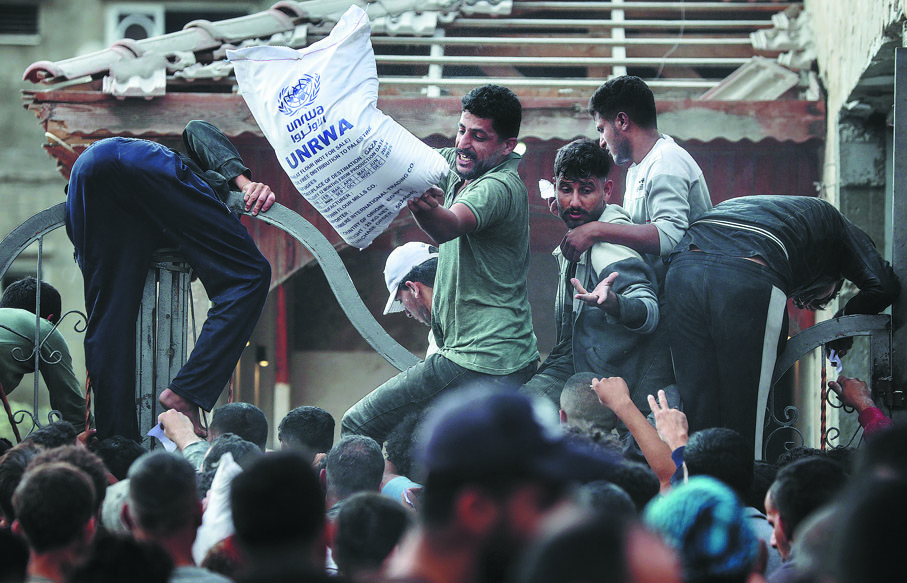
Iran would temper its response to the recent Israeli attack on its military sites if Israel accepts a cease-fire in Gaza and Lebanon, President Masoud Pezeshkian said on Sunday.
"If they (the Israelis) reconsider their behavior, accept a cease-fire and stop massacring the oppressed and innocent people of the region, it could affect the intensity and type of our response," Pezeshkian said during a cabinet meeting, Iran's official Islamic Republic News Agency reported.
However, Teheran "will not leave unanswered any aggression against its sovereignty and security", he added.
"Today, all countries in the region have come to this conclusion that the Islamic Republic of Iran seeks to establish peace and stability while Israel is seeking to exacerbate crisis and war in the region."
He also lashed out at the double standards of the United States and European countries in regard to the spread of crisis in the region, Mehr News Agency reported.
Iranian Foreign Ministry spokesman Esmaeil Baghaei on Monday criticized what he called the US' "destabilizing presence" after the deployment of B-52 bombers in the region.
"We have always believed that the presence of America in the region is a destabilizing presence," Baghaei told a news conference in response to a question about the deployment, adding it "will not deter (Iran's) resolve to defend itself".
Commemorating the National Day of Fighting Global Arrogance on Sunday, Pezeshkian said Iran has never initiated a war or advised any country to go to war. It has always been the US that has ignited war in various parts of the world, he added.
Arhama Siddiqa, a research fellow at the Institute of Strategic Studies Islamabad in Pakistan, told China Daily that there has been a careful balancing act by Iran, given its emphasis on economic recovery and sustainable development in the post-pandemic era.
"Domestically, the Iranian government must project strength to maintain deterrence and reassure its population of its resolve amid external pressures. This response serves a dual purpose: It communicates Iran's strategic positioning to its domestic audience while demonstrating to the international community that, although its priority may be stability, it won't shy away from assertive measures when necessary," she said.
Letter to UNSC
Meanwhile, Turkish Foreign Minister Hakan Fidan said on Sunday that Turkiye, along with 53 other signatories, has submitted a joint letter to the United Nations Security Council urging it to take immediate action to stop the flow of arms to Israel, state news agency Anadolu reported.
"This limitless aggression is threatening world regional stability and international order," Fidan said.
"We all have a moral responsibility to push forward a two-state solution to ensure the fundamental rights of the Palestinian people."
Siddiqa said Turkiye's move marks a "commendable" stance. While its intentions align with a broader desire for peace, it is clear that a collective, multilateral approach is essential for any real shift, she said, noting that Ankara itself faces its own complex challenges with terrorism.
"Moreover, the underlying issue remains Israel's strategic backing from the US, a primary factor preventing meaningful consensus on Gaza," she said, adding that without a shift in support from "Israel's main backer", the dynamics "are unlikely to change on Gaza".
Both US presidential candidates — Vice-President Kamala Harris and former president Donald Trump — have promised to end the conflict in Gaza should they win the tightly watched, neck-and-neck election on Tuesday.
"In the current landscape, where Israel is bolstered by unwavering US support, genuine progress toward peace requires broader international intervention," Siddiqa said.
In another development, Israel formally notified the UN of its decision to sever ties with UNRWA, the Palestinian refugees agency, it said on Monday, after lawmakers voted to ban the organization vital to the occupied territories.
The ban, which sparked global condemnation, should come into force in late January, with the UN Security Council warning it would have severe consequences for millions of Palestinians.





